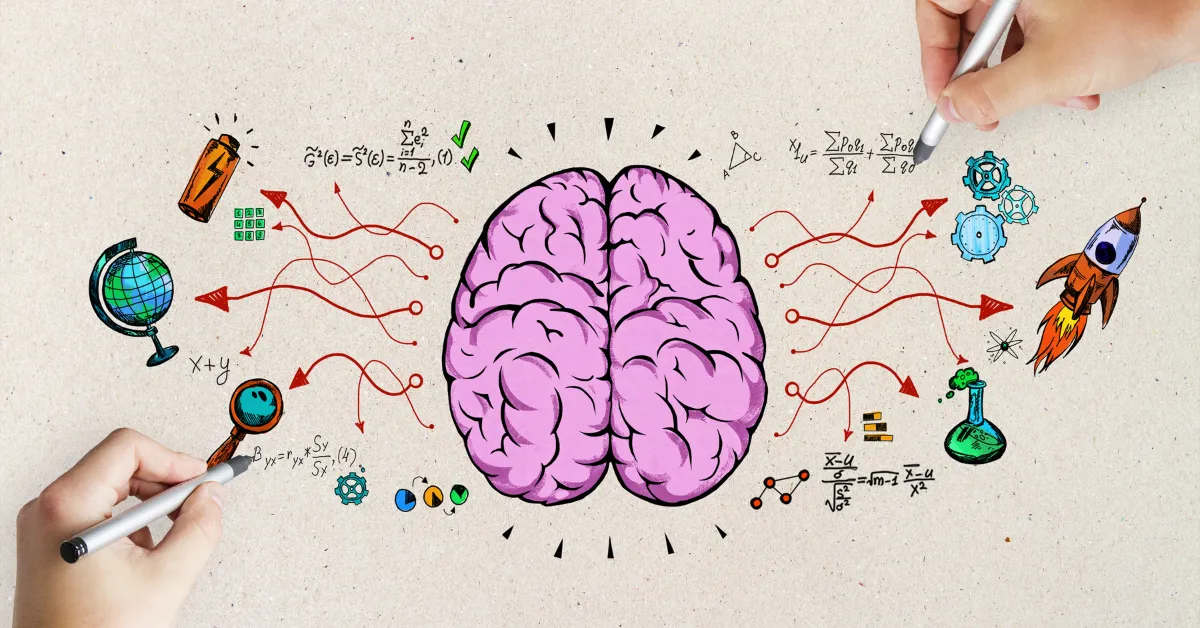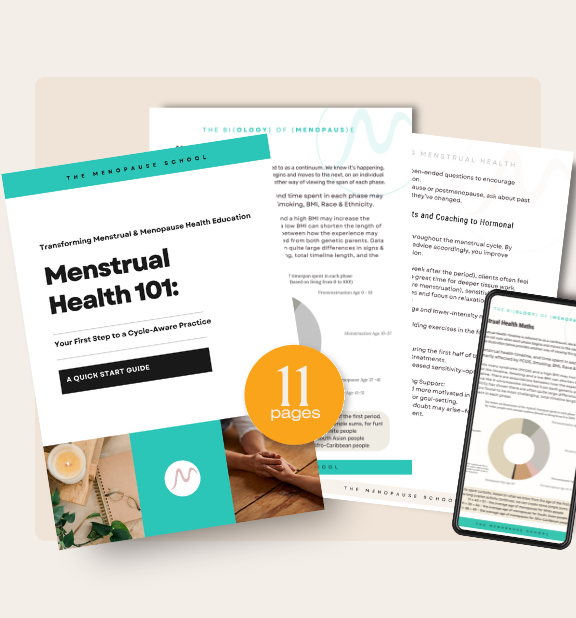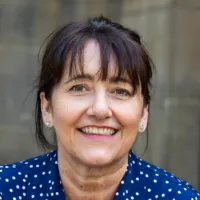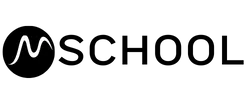Articles & Information
BLOG

Celebrating 85 years of oestradiol - Part 2
“The history of the discovery of oestrogens, the mechanisms of their synthesis, and their therapeutic applications are very important components of the fabric of endocrinology.”
Celebrating 75 years of oestradiol, Journal of Molecular Endocrinology, 2015.
Happy 85th Birthday Oestradiol - Part 2
You may think that oestrogens don’t get a mention at Key Stage 4 because we need to keep things simple at GCSE level. So, what about A level then? Still nothing in that curriculum that refers to oestrogen as a family of hormones in all humans. I spent half a day at Birmingham Library looking through every kind of A Level Biology text book and to my amazement, hormone biology in terms of health and well-being is not featured at all at Key Stage 5.
When you take a look at the most recent A Level curriculum from Oxford Cambridge and RSA first taught in 2023, and use the ‘find’ option to see the references to ovary, testes, oestrogen and testosterone, the result is zero for all of those words.
It would appear then from the age of 14-16 we are taught sex hormones are gender-associated chemical messengers, which is wrong, and no one teaches us anything different from that point forward.
If you leave school at 16 that means you have no real understanding of sex hormone biology in humans, and how they may influence your health and well-being in all genders.
If you leave school at 18, you still have no relevant and meaningful information on how to make informed choices about your own hormone health.
If you study to BTEC level or above it’s probably hit and miss as it will depend what subject you study.

When talking about the long term health and well-being of every human on the planet, those initial teachings that frame certain biological processes and the hormones that go with them as exclusive to females, we are limiting beliefs at a fundamental level.
The terms that become associated with those 'female' processes are nearly always referred to only when they are not operating in a way that is healthy. e.g. period problems, syndromes or symptoms
The mainstream narrative surrounding menstruation, periods, and female reproductive capacity often reflects cultural, historical, and societal attitudes. While menstrual health and the menstrual cycle are natural, vital biological process, the language used to describe them frequently leans toward the negative. For example, rather than reflecting on how someone may be feeling energised at the midpoint of their cycle or super creative in the follicular phase, the only labels we hear are things like, hormone imbalance, and menstrual disorders.
I ask a similar question again, is it because it is gender associated?
The ovary is fixed as the reproductive organ making female hormones exclusively, and can only be thought of as going wrong, never going right, unless they create a new human which can then be celebrated.
The ovary is a vital endocrine organ, much like the heart. In males the equivalent organ is the testes.
Why are we under-educating everyone? Who benefits?
Continue reading in Part 3 -

Celebrating 85 years of oestradiol - Part 2
“The history of the discovery of oestrogens, the mechanisms of their synthesis, and their therapeutic applications are very important components of the fabric of endocrinology.”
Celebrating 75 years of oestradiol, Journal of Molecular Endocrinology, 2015.
Happy 85th Birthday Oestradiol - Part 2
You may think that oestrogens don’t get a mention at Key Stage 4 because we need to keep things simple at GCSE level. So, what about A level then? Still nothing in that curriculum that refers to oestrogen as a family of hormones in all humans. I spent half a day at Birmingham Library looking through every kind of A Level Biology text book and to my amazement, hormone biology in terms of health and well-being is not featured at all at Key Stage 5.
When you take a look at the most recent A Level curriculum from Oxford Cambridge and RSA first taught in 2023, and use the ‘find’ option to see the references to ovary, testes, oestrogen and testosterone, the result is zero for all of those words.
It would appear then from the age of 14-16 we are taught sex hormones are gender-associated chemical messengers, which is wrong, and no one teaches us anything different from that point forward.
If you leave school at 16 that means you have no real understanding of sex hormone biology in humans, and how they may influence your health and well-being in all genders.
If you leave school at 18, you still have no relevant and meaningful information on how to make informed choices about your own hormone health.
If you study to BTEC level or above it’s probably hit and miss as it will depend what subject you study.

When talking about the long term health and well-being of every human on the planet, those initial teachings that frame certain biological processes and the hormones that go with them as exclusive to females, we are limiting beliefs at a fundamental level.
The terms that become associated with those 'female' processes are nearly always referred to only when they are not operating in a way that is healthy. e.g. period problems, syndromes or symptoms
The mainstream narrative surrounding menstruation, periods, and female reproductive capacity often reflects cultural, historical, and societal attitudes. While menstrual health and the menstrual cycle are natural, vital biological process, the language used to describe them frequently leans toward the negative. For example, rather than reflecting on how someone may be feeling energised at the midpoint of their cycle or super creative in the follicular phase, the only labels we hear are things like, hormone imbalance, and menstrual disorders.
I ask a similar question again, is it because it is gender associated?
The ovary is fixed as the reproductive organ making female hormones exclusively, and can only be thought of as going wrong, never going right, unless they create a new human which can then be celebrated.
The ovary is a vital endocrine organ, much like the heart. In males the equivalent organ is the testes.
Why are we under-educating everyone? Who benefits?
Continue reading in Part 3 -

Celebrating 85 years of oestradiol - Part 2
“The history of the discovery of oestrogens, the mechanisms of their synthesis, and their therapeutic applications are very important components of the fabric of endocrinology.”
Celebrating 75 years of oestradiol, Journal of Molecular Endocrinology, 2015.
Happy 85th Birthday Oestradiol - Part 2
You may think that oestrogens don’t get a mention at Key Stage 4 because we need to keep things simple at GCSE level. So, what about A level then? Still nothing in that curriculum that refers to oestrogen as a family of hormones in all humans. I spent half a day at Birmingham Library looking through every kind of A Level Biology text book and to my amazement, hormone biology in terms of health and well-being is not featured at all at Key Stage 5.
When you take a look at the most recent A Level curriculum from Oxford Cambridge and RSA first taught in 2023, and use the ‘find’ option to see the references to ovary, testes, oestrogen and testosterone, the result is zero for all of those words.
It would appear then from the age of 14-16 we are taught sex hormones are gender-associated chemical messengers, which is wrong, and no one teaches us anything different from that point forward.
If you leave school at 16 that means you have no real understanding of sex hormone biology in humans, and how they may influence your health and well-being in all genders.
If you leave school at 18, you still have no relevant and meaningful information on how to make informed choices about your own hormone health.
If you study to BTEC level or above it’s probably hit and miss as it will depend what subject you study.

When talking about the long term health and well-being of every human on the planet, those initial teachings that frame certain biological processes and the hormones that go with them as exclusive to females, we are limiting beliefs at a fundamental level.
The terms that become associated with those 'female' processes are nearly always referred to only when they are not operating in a way that is healthy. e.g. period problems, syndromes or symptoms
The mainstream narrative surrounding menstruation, periods, and female reproductive capacity often reflects cultural, historical, and societal attitudes. While menstrual health and the menstrual cycle are natural, vital biological process, the language used to describe them frequently leans toward the negative. For example, rather than reflecting on how someone may be feeling energised at the midpoint of their cycle or super creative in the follicular phase, the only labels we hear are things like, hormone imbalance, and menstrual disorders.
I ask a similar question again, is it because it is gender associated?
The ovary is fixed as the reproductive organ making female hormones exclusively, and can only be thought of as going wrong, never going right, unless they create a new human which can then be celebrated.
The ovary is a vital endocrine organ, much like the heart. In males the equivalent organ is the testes.
Why are we under-educating everyone? Who benefits?
Continue reading in Part 3 -
a free practitioner's guide
Menstrual Health 101
Key insights
Your First Step to a Cycle-Aware Practice

Start making a real impact today.

Why You Need This Guide
Explore how hormonal rhythms influence metabolism, mood, and well-being at every life stage
Discover how small, practical shifts in your approach can enhance client outcomes, build trust, and set you apart in your field.


